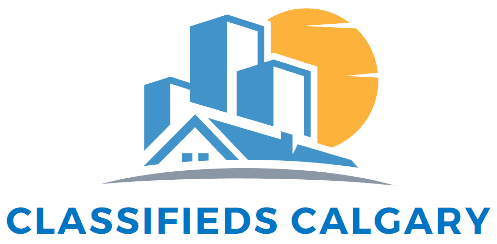Thinking about buying a home or investing in Canadian real estate this year? Understanding what homes actually cost across the country is a great place to start. With interest rates, supply challenges, and population growth continuing to shape the market, prices in 2025 are reflecting both national and local dynamics.
Whether you’re a first-time buyer, seasoned investor, or just curious about where the market stands, this updated guide breaks down average house prices across major Canadian cities, explains the key factors driving costs, and answers some of the most common questions buyers have right now.
What’s the Average Home Price in Canada in 2025?
As of Q2 2025, the average home price across Canada is about $746,000 CAD, according to the Canadian Real Estate Association (CREA). But keep in mind, that’s a national average—prices can vary wildly between provinces and cities.
2025 House Prices by Major Canadian City
Here’s a quick breakdown of average prices and trends in some of Canada’s largest markets:
| City | Avg. Price (All Types) | Yearly Change | Market Trend |
|---|---|---|---|
| Toronto, ON | $1,100,000 | +2.3% | Stabilizing |
| Vancouver, BC | $1,240,000 | -1.8% | Slight decline |
| Calgary, AB | $580,000 | +4.9% | Steady growth |
| Edmonton, AB | $420,000 | +3.5% | Growing |
| Montreal, QC | $720,000 | +1.7% | Gradual recovery |
| Halifax, NS | $470,000 | +5.1% | Strong appreciation |
| Winnipeg, MB | $395,000 | +1.2% | Relatively stable |
| Ottawa, ON | $710,000 | +1.9% | Balanced market |
| Saskatoon, SK | $380,000 | +2.5% | Rising steadily |
| Victoria, BC | $920,000 | +0.5% | Plateauing |
Note: Figures are rounded estimates based on Q2 2025 MLS data. Check with a local realtor for the most accurate numbers in your area.
What’s Driving Home Prices in 2025?
Several factors are shaping home prices across Canada right now:
- Interest Rates: Higher borrowing costs have cooled rapid price growth, but haven’t caused widespread declines.
- Low Inventory: There just aren’t enough homes in many regions, especially larger cities, which drives prices up.
- Immigration & Population Growth: More people mean more demand, especially in fast-growing places like Calgary and Halifax.
- Government Policy: Things like foreign buyer bans, incentives for first-time buyers, and regional taxes all play a role.
- Local Job Markets: Cities with strong employment opportunities—like Toronto’s tech sector or Calgary’s energy industry—typically see faster price increases.
Cheapest vs. Most Expensive Cities to Buy in 2025
Here’s how some cities stack up on the affordability scale:
| Rank | City | Avg. Home Price | Affordability |
|---|---|---|---|
| 1 | Vancouver, BC | $1.24M | Most Expensive |
| 2 | Toronto, ON | $1.10M | Very Expensive |
| 3 | Victoria, BC | $920K | Expensive |
| 8 | Winnipeg, MB | $395K | Affordable |
| 9 | Saskatoon, SK | $380K | More Affordable |
| 10 | Saint John, NB | $295K (est.) | Most Affordable |
Average Prices by Property Type (2025)
Here’s what you can expect to pay based on the type of home you’re considering:
| Property Type | National Avg. Price | Best Cities to Buy |
|---|---|---|
| Detached Homes | $890,000 | Calgary, Ottawa |
| Semi-Detached | $720,000 | Edmonton, Montreal |
| Townhouses | $640,000 | Winnipeg, Halifax |
| Condos | $540,000 | Toronto, Montreal |
| Bungalows | $675,000 | Ottawa, Regina |
Regional Trends Worth Noting
- Toronto & Vancouver: Still the most expensive markets. Great long-term value, but lower rental returns.
- Calgary & Edmonton: More affordable, with solid rental yields and room to grow.
- Halifax: Attracting buyers with remote work flexibility and quality of life.
- Montreal: Offers a blend of affordability, cultural richness, and steady growth.
- Smaller Cities: Places like Moncton, Kelowna, and London are gaining attention for offering value outside the big metros.
FAQs About Canadian House Prices in 2025
1. What’s the most expensive city to buy a house in?
Vancouver holds the top spot with an average price over $1.2 million.
2. Where can I find the most affordable homes?
Look to cities like Saint John (NB), Saskatoon (SK), or Winnipeg (MB), where prices are generally below $400,000.
3. Are prices going down this year?
Not exactly. The market has cooled from pandemic highs but is mostly stable. In many cities, prices are growing at a moderate pace.
4. Is now a good time to buy?
If you’re looking long-term and can afford current rates, yes. Cities like Calgary and Halifax are especially attractive right now.
5. What hidden costs should I plan for?
In addition to the listing price, budget for:
- Land Transfer Tax
- Legal Fees
- Home Inspection
- Maintenance and Insurance
- Mortgage Insurance (if putting down less than 20%)
Final Thoughts
Keeping up with average home prices across Canada can help you make smarter decisions—whether you’re buying, selling, or investing. Remember, national numbers only tell part of the story. Local trends, neighborhood dynamics, and your personal goals matter just as much.
In 2025, there are real opportunities for both first-time buyers and savvy investors. Just be sure to do your homework, work with professionals, and stay focused on the long game. Real estate isn’t about timing the market—it’s about time in the market.

